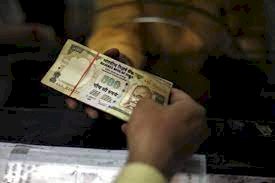Thailand which was once the strongest currency in Asia is now witnessing a slump in its currency value
A Japanese bank noted the uncharacteristic and under-performance of the Thai Baht, rendering it the worst currency in 2021

The Thai baht which was once regarded as the strongest-performing currency in all of Asia, has now been witnessing a steady decline in 2021, making it the worst-hit currency in the Asian region. A Japanese bank noted the uncharacteristic and under-performance of the Thai Baht, rendering it the worst currency in 2021. The baht currency had plunged over 10% against the U.S. dollar, as of Monday morning. Thailand’s currency is amid the weakest-performing currencies this year in comparison to major Asia Pacific currencies like the Japanese yen which recorded a 7% decline, the Malaysian ringgit showcasing a fall of 5%, whereas the Australian dollar down by over 4.43%.
At its face value, Thai Baht is the significant and unequivocal laggard cannot square up with the country’s strong current account surplus. In 2019, even before the COVID-19 pandemic hit the world, there were rising concerns about the strengthening of Thai baht due to its large trade surplus. A stronger currency ends up rising the costs of its exporting goods, making them less attractive for the international markets.
However, the Thailand currency’s underwhelming performance in 2021 cannot be blamed solely up on the pandemic, considering that the delta variant hasn’t been much of an issue for the country thus far. An analysts stated that declining tourism numbers have augmented the COVID-19 devastation on the country’s economy. The country wants to get fully open by October this year. However, the target may not be achieved amid rising infections around the world. Thailand had recorded over 34,000 tourist arrivals this May, in contrast to more than 39 million in the year 2019 alone. The Southeast Asian nation has long been dependent upon on tourism money for its economic growth. Tourism spending has accounted for more than 11% of the country’s GDP in 2019, before the CVOVID-19. And to hit to such a sector has been largely impacting the currency of the country.





























